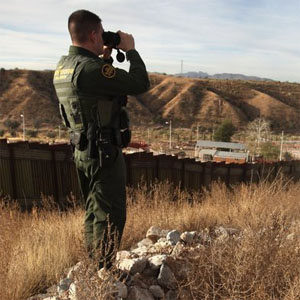I spent the five happiest years of my life in a morgue. As a forensic scientist in the Cleveland coroner’s office I analyzed gunshot residue on hands and clothing, hairs, fibers, paint, glass, DNA, blood and many other forms of trace evidence, as well as crime scenes. Now I'm a certified latent print examiner and CSI for a police department in Florida. I also write a series of forensic suspense novels, turning the day job into fiction. My books have been translated into six languages.
That entirely depends upon what agency you work for. Some police department crime labs may have that requirement. Many, like mine, have civilian employees for forensic support. The only way to know is to call the place you might want to work at and ask. (Or check their website for job postings.)
Any science major is a good thing. The requirements for each agency or lab vary, so if you have a particular location in which you wish to work, you might call all your potential employers and ask what the job requirements are. Then you can decide whether a science degree, a forensic science degree, a masters or a PhD would be best. Also check salaries and decide whether they are sufficient, and be prepared for a lot of competition.
Almost certainly, no. Unlike television, real forensic equipment is designed to test for certain things. For example the mass spectrometer in the toxicology department is set to test for illegal narcotics and not heavy metals such as arsenic. If arsenic is suspected, it could be detected with a different instrument or different parameters programmed into the same instrument. So I doubt there is any equipment that could be set up to detect microscopic amounts of photographic chemicals, if a photo would even shed any.
In my personal experience, I have only testified to bloodstain pattern analysis once, and it didn’t really tell anything significant about the case because there was blood everywhere, and the fingerprints in blood weighed more than the patterns.
Border Patrol Agent
 What's the most creative way you saw cartels getting drugs across the border?
What's the most creative way you saw cartels getting drugs across the border?
Antiques Dealer
 How easy is it to forge a rare piece, and are fakes a big problem in the antiquing world?
How easy is it to forge a rare piece, and are fakes a big problem in the antiquing world?
CPR Trainer
 Just how effective is the Heimlich, really?
Just how effective is the Heimlich, really?
Wow, that's an extremely broad question. I don't know if the rates of crimes solved have been increased greatly--perhaps in some crimes like rape or murder but perhaps not in other crimes like burglary and theft. But certainly the biggest advances in forensics have been DNA and the connectedness of fingerprint databases. Less specific but perfectly valid analyses like pollen, soil, and other trace evidence examination have gone by the wayside. And digital analyses such as the downloading of cell phones and personal computers are helping solve crimes more and more, but then people didn't have cell phones or personal computers 40 years ago so I'm not sure that counts!
I hope that helps!
Sorry, I think that's something I used to know years ago but have since forgotten. I know the DNA can be cut, maybe by enzymes? into the sections of short tandem repeats. But I haven't done DNA analysis in 20 years, so my skills are not up to date. Sorry I couldn't help!
Sorry, I wouldn't know anything more about it than anyone else. Try Google. Or watch the excellent miniseries, "American Crime Story: The Run For His Life." It was great.
-OR-
 Login with Facebook
Login with Facebook (max 20 characters - letters, numbers, and underscores only. Note that your username is private, and you have the option to choose an alias when asking questions or hosting a Q&A.)
(A valid e-mail address is required. Your e-mail will not be shared with anyone.)
(min 5 characters)
By checking this box, you acknowledge that you have read and agree to Jobstr.com’s Terms and Privacy Policy.
-OR-
 Register with Facebook
Register with Facebook(Don't worry: you'll be able to choose an alias when asking questions or hosting a Q&A.)